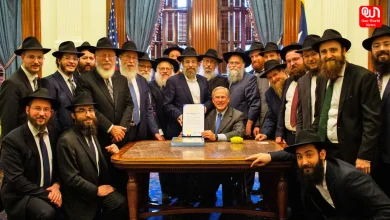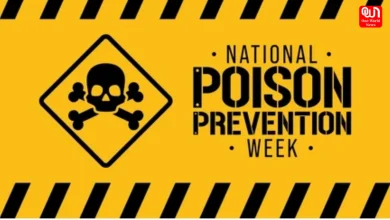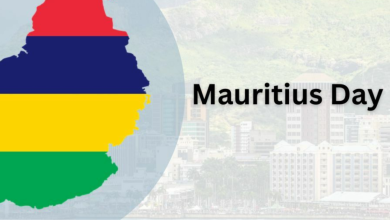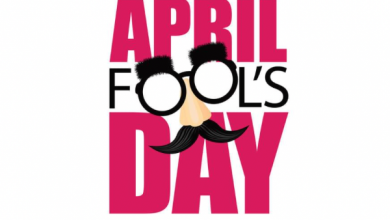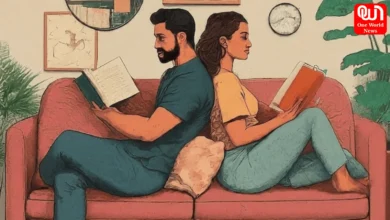How Ayurvedic doctors are helping in the pandemic

Dr Abhilasha Bhardwaj and Dr Sruthi Vishwanath explains how ayurvedic doctors are helping in the pandemic
The second wave of Covid 19 has brought unprecedented destruction to the medical system and human lives. The lack of oxygen supplies and hospital beds in the initial hit of the second wave have derailed the already broken medical facility of the country. This time, along with the common people, the fatality rates of the doctors have crossed the mark of 400, putting the state into its ugliest trauma.
The worst part of the second wave is the common tragic deaths of doctors who had to face multiple issues. Dr Aditya Gupta, junior resident paediatrics at AIIMS Delhi, continuously tweeted (@adityaaiims) about his helplessness in not being able to arrange a bed for his father who was an Air Force officer. Another tragic story was of the suicide of Dr Vivek Rai, who had been attending to Covid 19 patients for nearly a month in a private hospital in Delhi.
Our doctors being thrown into deaths, lack of resources, tensions for loved ones and mental traumas prove the vulnerability of our medical system.
On the other side, Ayurvedic doctors have also been at the forefront. The Ayurvedic Medical Association of India has set up guidelines to regulate the present scenario.
Dr Abhilasha Bhardwaj from Chaudhary Bhram Prakash Ayurved Charak Sansthan, Delhi and Dr Sruthi Vishwanath, a practising house surgeon from District Ayurvedic Hospital, Kerala, two certified Ayurvedic doctors tell us about how Ayurveda and its doctors are tackling the pandemic.
Dr Abhilasha Bhardwaj and Dr Stuti Vishwanath explain how ayurvedic doctors are helping in the pandemic
Q1. How Ayurvedic doctors treat covid-19 patient?
Dr Abhilasha– According to Ayurveda, health is defined as “Prasanna atma indriya manaha swastha iti abhidheeyate” which expresses that a person is healthy when soul, body & mind are in a normal state. We emphasize all these parameters on covid patients as well.

Along with ayurvedic medications, dietary regimes and lifestyle modifications according to Ritucharya (seasonal) and Dincharya (day to day routine) is advised. We also provide recreational therapies, yoga, pranayama and counselling to maintain the emotional wellbeing of a patient.
Dr Sruthi: The Patients across ayurvedic hospitals have been turned into different target groups. Group one is assigned for patients who are health workers and those who are quarantined. Along with the modern medicines, immunity boosters, lifestyle tips, different medicinal formulations are given to them from our side.

For patients under target 2, treatments are focused on the ones with comorbidities. Medicines are provided according to the symptoms they show, be it diabetes or blood pressure or heart disease.
In target three, we focus on pregnant and lactating women. Along with the ongoing medicines, Ayurveda is focusing on an integrated treatment. Hence, our medicines complement the allopathic ones.
In target four, we take care of patients who had recovered and continue to have post covid symptoms. We give them medicines that focus on rejuvenation.
Apart from that, our community named the Ayurvedic Medical Association of India gives online consultation to the patients. “Kude” was one such initiative made in the Malappuram district of Kerala. Experts well versed in 5 languages were arranged to tackle the mental health issues of migrant workers as well. “Thirike” was another initiative started for the patients in Alapuzha through which our doctors were engaged in Tele counselling.
Moreover, the final year students studying Ayurveda were also made involved in the crisis. We shifted our focus to quarantined patients after coordinating with the ASHA workers of the concerned place. Ayur Raksha Task Force was made responsible for this.
Q2. What can be considered as mild symptoms in Ayurveda?
Dr Sruthi and Dr. Abhilasha-: Mild symptoms and protocols for us are all the same. Headache, slight fever, throat irritation/soreness and tiredness are generally said to be the symptoms. Problems that can be treated easily is considered mild symptoms.
Q3. How many patients have your hospital treated?
Dr. Abhilasha– It is very delightful to share that thousands of mild to moderate covid patients are given pure ayurvedic treatment. Yoga and Pranayama are also followed by patients and has helped them to restore their mental and physical health.
Also Read: 7 Books to read by Devdutt Pattanaik on mythology
Q4. What are the challenges that you are facing in the second wave?
Dr Abhilasha: There has been a rapid tsunami of patients and a shortage of resources. The helplessness by turning back positive patients due to non-vacant beds was very upsetting. Many healthcare workers among staff are turning positive. There is psychological distress to maintain personal health along with families.
False and negative reports due to new variant have misled timely detection leading to more deaths.
Happy Hypoxia in youth is also bothersome where there is no sign of breathing difficulty yet a low level of oxygen in the blood has led to poor detection and hospitalisation.
Dr. Sruthi: The pivotal challenge we face is of the post covid symptoms. The mutation in the virus has made it much more lethal. Sending Ayurvedic medicines to maximum patients for an integrated treatment is our aim. We suggest Ayurvedic treatment to patients being treated at home in the second wave, along with the modern ones as lack of proper food intake seen among them.
Coming to the doctors in Kerala, I think a proper medical team to configure everything is needed. Once that is solved, Ayurveda can also help in tackling the medical emergency in a much better way. Coordination of modern medicine and Ayurveda is the need of the hour. Even in China, where tackling the virus was once beyond their powers, coordination of their traditional medicines with modern ones helped in reducing the positivity rate to 25%.
Q5. Have you got any guidelines from the govt and ministry of AYUSH to tackle the second wave?
Dr. Abhilasha: Yes! Preventive, therapeutic and promotive management has been guided by the Ministry of Ayush.
For Preventive- Proper nutrition, warm fluids, daily practise of yoga and pranayama at least for 30 minutes is recommended.
-Intake of immunity enhances as Giloyghan Vati 100mg twice a day, raw amla, water processed with Tulsi , or Ashwagandha Powder 3gm twice a day is advised.
For therapeutic– People with mild to moderate symptoms and co-morbidities, the following should be considered.
For Fever- Shamshamani Vati 500mg or Mahasudarshan ghanvati 500mg thrice a day.
For Cough- Sitopaladi Choorna 3gm thrice a day, Kantakari Avaleha 10gm twice a day.
For Myalgia- Ashwagandharishta 20ml- equal water twice a day.
For Breathing Difficulty- Steam Inhalation with carom seeds, mint leaves and eucalyptus oil twice a day.
For Acute respiratory distress syndrome- Local application of Saindhavadi Tail on the chest is advised.
For Vulnerable subjects like Pregnant Woman, Lactating Mothers, children, geriatric population- Integrated management along with existing medicines under observation is done. (doubt)
For Recovery & Rejuvenation-
Dhatuposhan & Rasayana Sevan with Draksha is advised.
Deepan Pachan drugs like Shandanga Paniye for Loss of Appetite.
Q6. What are your suggestions to the general public to keep them safe?
Dr Sruthi: Our suggestions would remain the same as the general ones. Social distancing, masking, sanitising would be the major ones. Apart from that, immunity boosters are also important in these times. Pranayaam can help a lot in increasing our lung capacity. We also prefer naturopathy that focuses more on exercises that aid lung capacity. We often refer covid patients to the naturopathy wing so that the treatments are coordinated. Elderly patients are mostly considered for this, however, it cannot be applied to everybody in general. Specificity In patients and their conditions are important. There are multiple helplines made available for patients who would prefer Ayurveda. My suggestion will be to consult the nearby ayurvedic doctor and get a personalized treatment.
Dr. Abhilasha:
One should follow preventive measures in guidelines by Ayush like proper nutritious diet, adequate sleep, dincharya and ritucharya regimes.
Nasya with Anu or Shadbindu Tail,
Oil pulling with Sesame oil,
Gargling with turmeric & salt
Fumigation of house with neem,guggulu,Kapura.
Intake of warm & easily digestible food and restriction of fried,oily junk food should be done.
Golden milk ( few pinches of turmeric in 1 glass of warm milk at bed time) is advised for multiple benefits. Avoid if suffering from indigestion.
Rasayana Sevana with chyawanprash (1tsf empty stomach twice a day) should be taken. Diabetic patients should take sugar-free chyawprash.
Yoga and Pranayama should be followed sincerely to boost your immunity.
DENIAL & DELAY
When you deny the existence of corona and fail to take the necessary steps, the treatment is delayed. This can sadly lead to severe problems. My suggestion would be to not wait for the RTPC reports. Consulting a doctor prima facia with the earliest symptoms is always recommended.
Constant monitoring of oxygen saturation levels with an oximeter at home can be a wise choice to prevent misfortune due to happy hypoxia.
A coordination between two schools of medicines can help achieve improvements in the current health crisis. It is only the effort that has to be done for the betterment of our health sector. Bringing Ayurveda and allopathy under one umbrella can be seen as the need of the hour. But for critical patients it is suggested to take the allopathic treatment.
Have a news story, an interesting write-up or simply a suggestion? Write to us at info@oneworldnews.com

